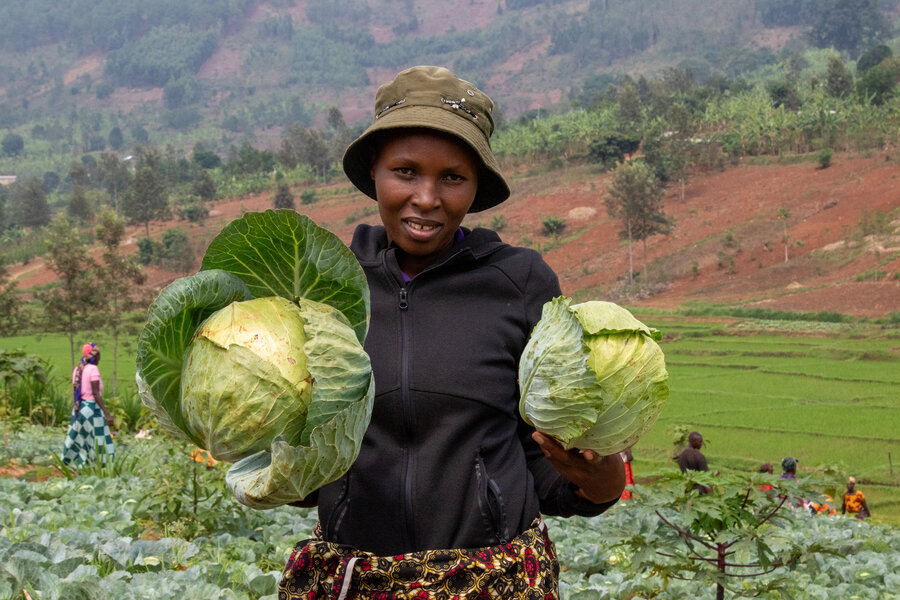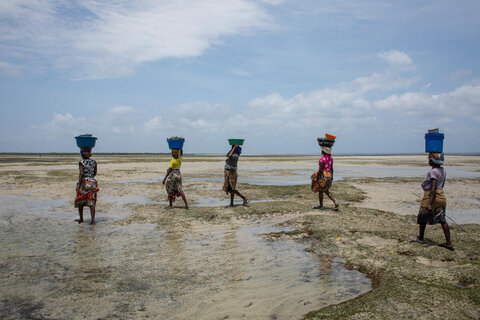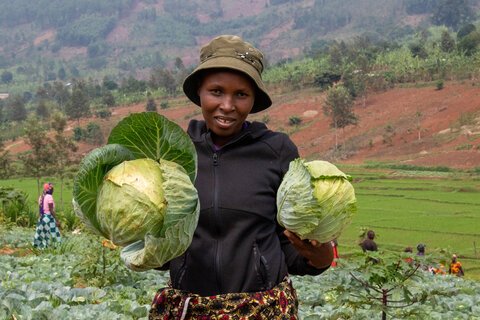
Hoe in hand, Godelive Niyonagira heads to her fields in the quiet hills of Muyinza village, some 130 km south of Rwanda’s capital Kigali. The warm sun chases away a chilly wind that sweeps through the high slopes.
Niyonagira has a maize crop to manage, which fits into her bigger plan: to renovate her home and secure medical insurance. She can do both with the profits from her harvest, which have surged, thanks to a World Food Programme (WFP) initiative allowing women farmers to access loans at affordable terms.
WFP supports women at the crossroads of climate change
From Bolivia to Zambia, the World Food Programme is giving women the tools to cope with weather extremes that threaten livelihoods

“I work hard to ensure my family has food,” she says, “and sell the surplus to meet my non-food needs.” Niyonagira is a single mother of five children.
Known as SheCan, the WFP initiative reaches more than 1,200 smallholder farmers in Rwanda – one of the most densely populated countries in Africa with more than 38 percent of its population (13.2 million people) living below the poverty line.




